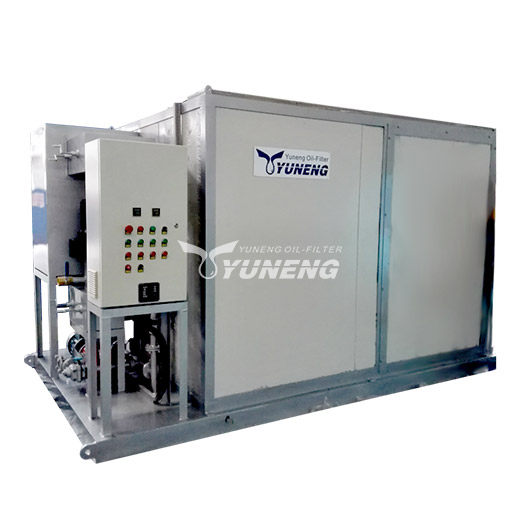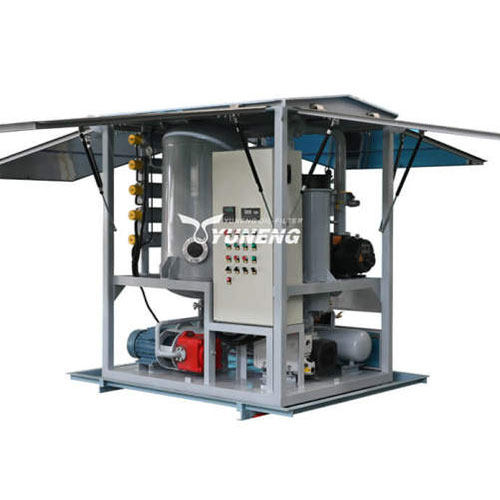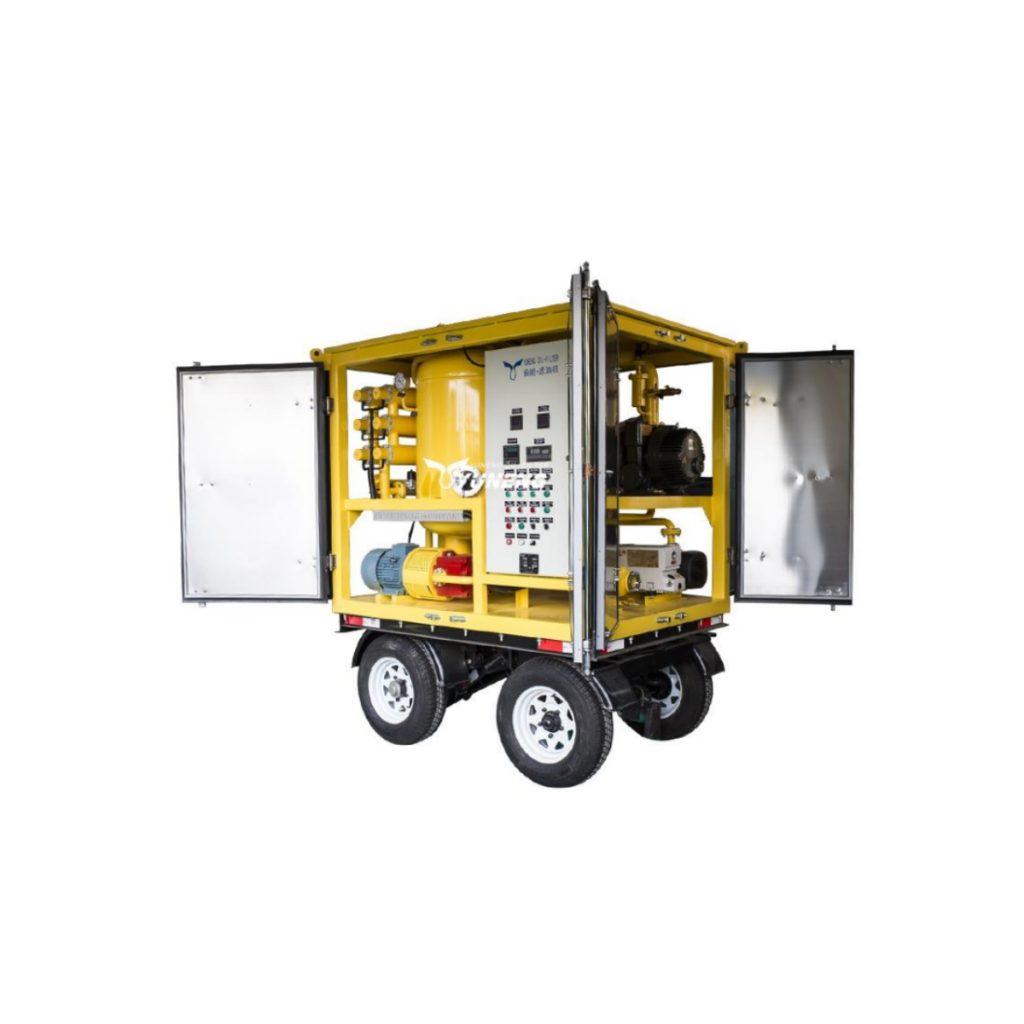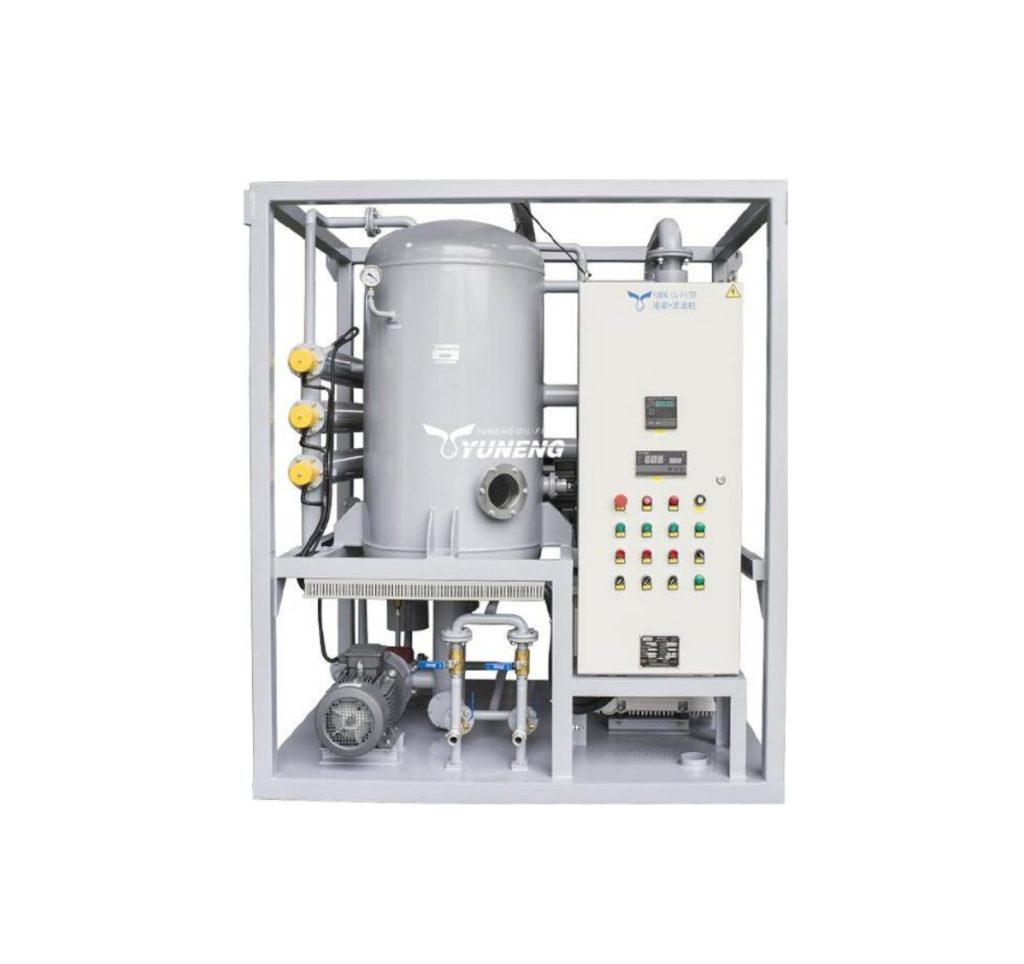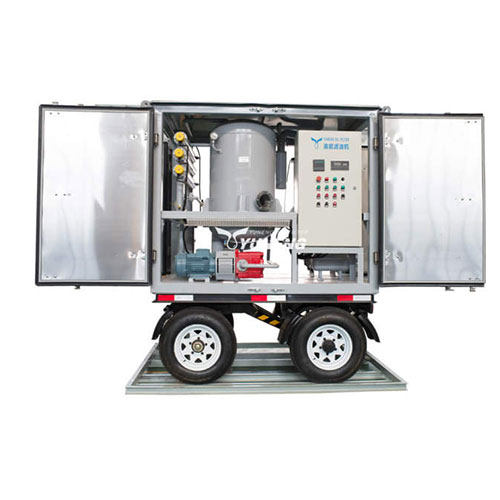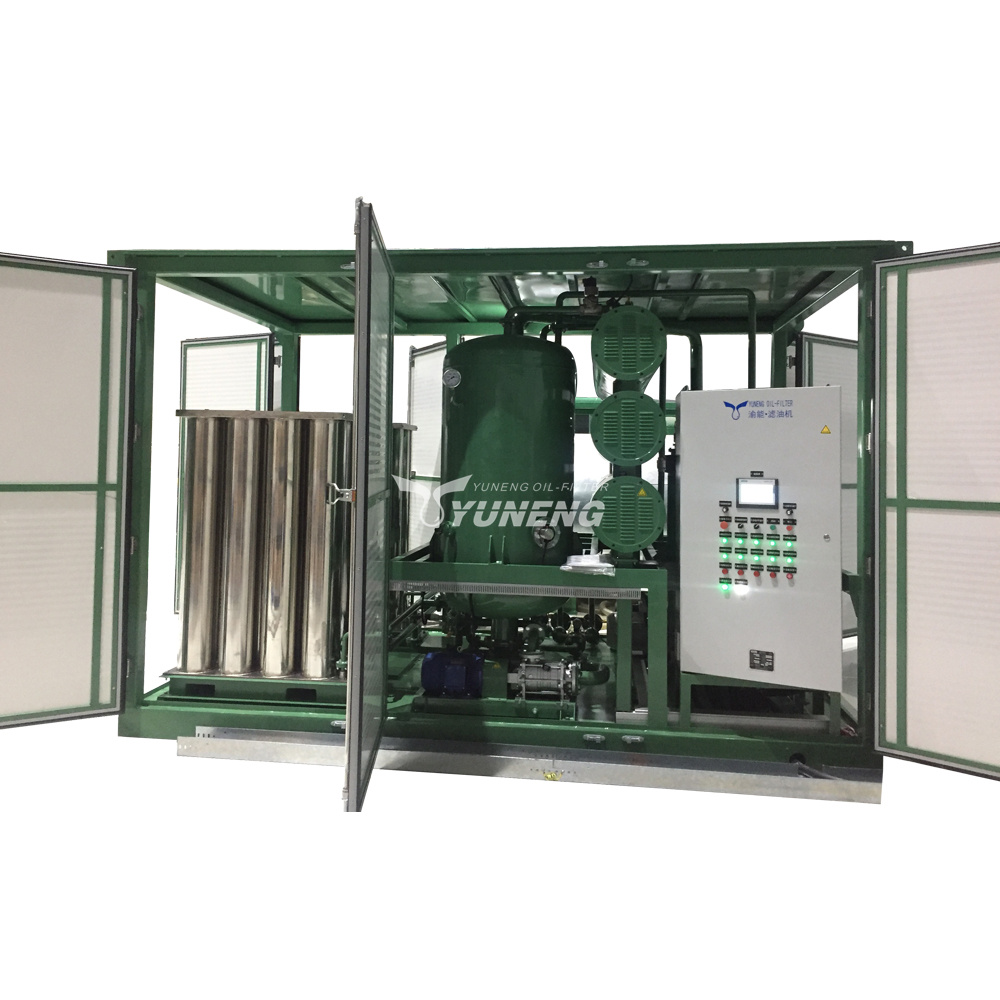Transformer Oil Filtration Machine: Factors Affecting Selection
Maintaining the health and service life of transformers is important for maintaining reliable, efficient power distribution. Transformer Oil Filtration Machines are specifically designed for this process, removing contaminants that can reduce oil insulation and cause equipment failure. While the price of Transformer Oil Filtration Machines may vary, focusing on cost alone may not be the wisest strategy. This article explores five key factors to consider beyond price to enable you to make an informed purchase that optimizes the performance and value of your transformer.
Machine Capacity and Flow Rate
1. Capacity
Transformer oil filtration machines come in various capacities, measured in liters per hour (LPH) or gallons per minute (GPM). The ideal capacity depends on the size and oil volume of your transformers. Choosing a machine with insufficient capacity will require multiple filtration cycles to process all the oil. This extends downtime and can impact production or maintenance schedules. For instance, attempting to filter the oil from a large power transformer with a machine designed for smaller distribution transformers would be a tedious and inefficient process. Conversely, an oversized machine will represent an unnecessary upfront cost.
2. Flow Rate
The flow rate determines how quickly the machine can process the oil. A higher flow rate translates to faster filtration times, which can be especially beneficial for:
- Large transformers: Large transformers require processing a significant volume of oil. A higher flow rate ensures faster completion times and minimizes downtime.
- Time-sensitive situations: If rapid turnaround times are critical for your operations, a high flow rate becomes even more important. For example, during outages or planned maintenance windows, a faster filtration process can minimize disruption to your power distribution network.
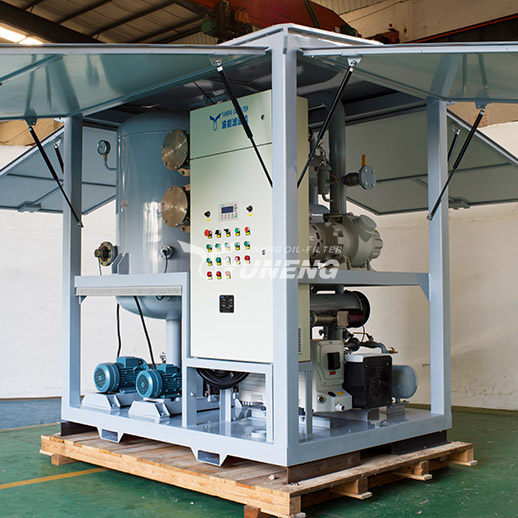
Filtration Capability
Transformer oil accumulates contaminants over time, including moisture, sludge, and dissolved gases. These contaminants can compromise the oil’s insulating properties and lead to equipment failure. Effective filtration is essential to maintain optimal transformer performance.
Here are two key aspects to consider:
1. Contaminant Removal
Different filtration technologies target specific types of contaminants. Here’s a breakdown of some common methods:
- Coalescing Filtration: Effective for removing water and large particles.
- Depth Filtration: Removes finer particles like sludge and some dissolved gases.
- Adsorption Filtration: Utilizes adsorbent media to remove dissolved gases and improve oil quality.
Identify the primary contaminants present in your transformer oil through oil analysis. This will help you choose a machine equipped with the appropriate filtration technologies to effectively remove those specific contaminants and ensure optimal oil quality.
2. Micron Rating
The micron rating of the filtration media determines the size of particles the machine can capture. A lower micron rating captures smaller particles but might clog more frequently. Selecting the appropriate micron rating balances contaminant removal efficiency with filter replacement needs. For instance, a 10-micron filter might be suitable for removing larger particles like sludge, while a 1-micron filter might be necessary for capturing finer contaminants but would require more frequent changes.
Effective filtration capability protects your transformers by removing harmful contaminants and maintaining the integrity of the insulating oil. By understanding the types of contaminants present and selecting the right filtration technology and micron rating, you can ensure your machine effectively addresses your specific needs.
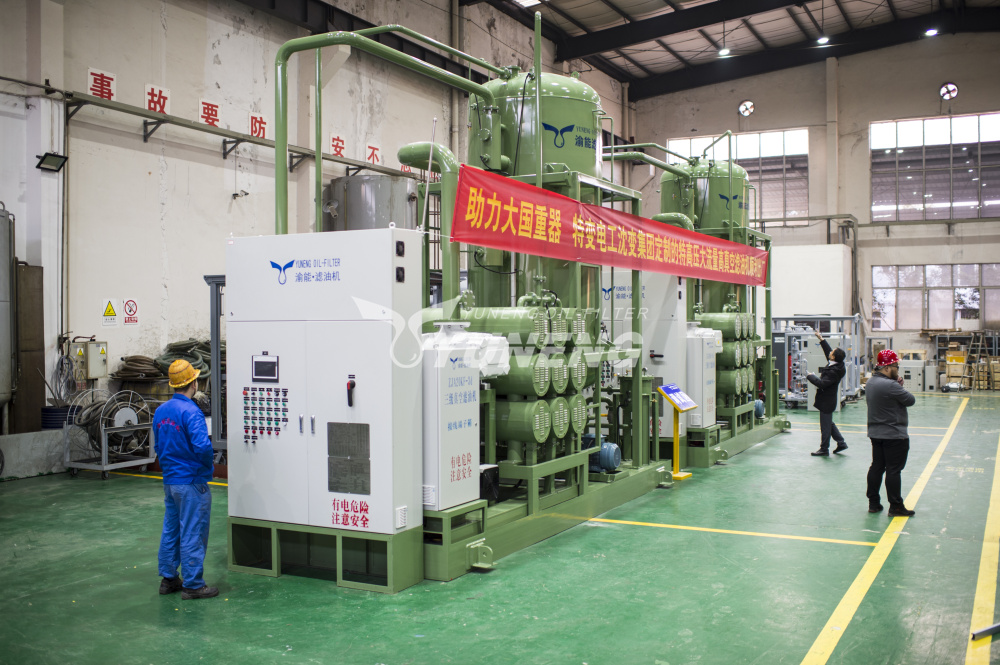
Ease of Operation and Maintenance
1. User-Friendly Design
A user-friendly transformer oil filtration machine streamlines operations and minimizes errors. Look for features such as intuitive controls, clear display panels, and automated functions like self-cleaning systems and automatic shutdowns. Machines with digital interfaces and programmable settings enhance usability, making the filtration process efficient and reducing the need for manual intervention.
2. Maintenance Requirements
Ease of maintenance is crucial for the long-term performance of the machine. Choose models with easily accessible components and clear maintenance guidelines. Regular upkeep is essential, so machines that are simple to clean and service can save time and reduce downtime. Also, consider the availability and cost of spare parts—machines that use common or readily available parts are more practical and cost-effective in the long run.
3. Training and Support
Proper training and ongoing support from the supplier are vital. Suppliers that offer comprehensive training ensure your staff can operate and maintain the machine efficiently. Look for those who provide detailed manuals, video tutorials, and technical support services. This ongoing support helps troubleshoot issues quickly, minimizing operational disruptions and maintaining the machine’s performance.
In summary, a transformer oil filtration machine should be easy to operate and maintain. Prioritize user-friendly designs, simple maintenance procedures, and robust training and support to ensure smooth, efficient operation and long-term reliability.
Machine Portability vs. Stationary Needs
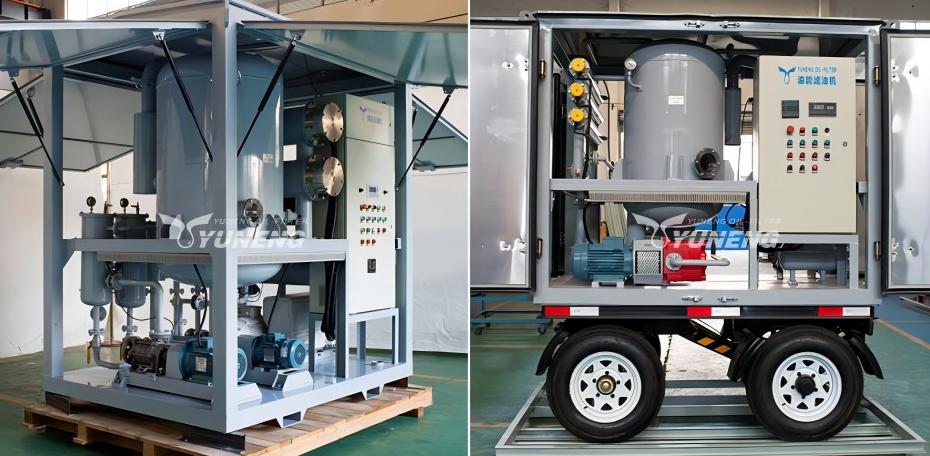
- Stationary Needs: If you have a single transformer in a fixed location, a stationary transformer oil filtration machine might be the most cost-effective option. Stationary units are typically larger and more powerful, offering higher capacity and flow rates for efficient oil processing. They are also often more permanent installations, potentially requiring dedicated space and electrical connections.
- Mobile Applications: If you manage multiple transformers at different locations, a mobile transformer oil filtration machine provides greater flexibility. These machines are typically more compact and lighter, allowing for easier transportation between work sites. They might be trailer-mounted or have wheels for maneuverability. While mobile units may have a slightly lower capacity or flow rate compared to stationary options, their portability and versatility are crucial for servicing multiple transformers.
Additional Considerations for Portability:
Consider the accessibility of your transformer locations. If maneuvering a large machine through tight spaces or uneven terrain is a challenge, a more compact and portable option might be necessary.Mobile machines should be designed for easy setup and operation at different locations. Look for features like self-contained units or quick-connect hoses that minimize setup time and effort.
Supplier Reputation and After-Sales Support
Finding a reliable supplier with a solid reputation in the transformer oil filtration machine industry is paramount. Look for manufacturers with a proven track record of quality and innovation. Established brands are more likely to adhere to rigorous manufacturing standards and utilize high-quality materials, ensuring the machine’s durability and performance.
Beyond the initial purchase, after-sales support is equally important. A responsive and knowledgeable customer service department is crucial for addressing troubleshooting needs and ensuring you receive proper support throughout the machine’s lifespan.
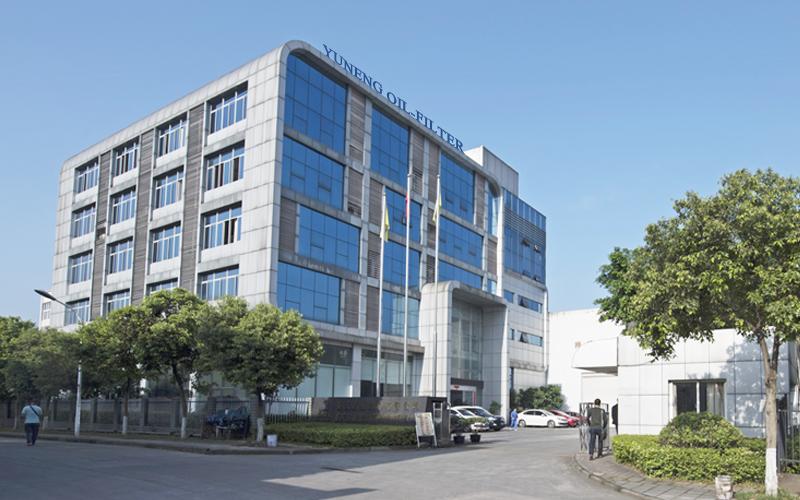
YUNENG is a leading manufacturer of high-performance transformer oil filtration machines. We understand the importance of reliable transformer operation and are dedicated to providing top-tier filtration solutions. Our machines are known for their:
- Superior capacity and flow rates: We offer a wide range of machine capacities to meet the specific needs of your transformers. High flow rates ensure efficient oil processing and minimize downtime.
- Advanced filtration technology: Our machines are equipped to remove a broad spectrum of contaminants, ensuring optimal oil quality and transformer health.
- User-friendly operation and maintenance: Our intuitive control panels and readily available replacement parts make operation and maintenance a breeze.
- Flexible portability options: We offer both stationary and mobile filtration units to suit your specific needs.
YUNENG also takes pride in exceptional after-sales support. We provide:
- Comprehensive warranties: We stand behind our products with industry-leading warranties.
- Globally accessible spare parts: A network of distributors ensures you have easy access to replacement parts when needed.
- Dedicated technical support team: Our team of experienced engineers is available to answer your questions and provide technical guidance 24/7.
Investing in a YUNENG transformer oil filtration machine is an investment in the long-term health and performance of your transformers. Contact YUNENG today to discuss your specific needs and discover how our machines can help you optimize your transformer maintenance practices.
Conclusion
Purchasing a Transformer Oil Filtration Machine is a major investment that can improve the reliability and service life of a transformer. By considering these 5 factors, you are sure to find a machine that will provide the best performance and value for your investment

